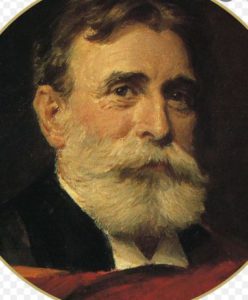
The nature of the atonement
[Atonement as “satisfaction” (compensation, reparation) was first used by Anselm (1033-1109) to stress that the death of Christ was a satisfaction rendered to God’s justice and honor. Subsequently, 17th century Reformed theologians taught that Christ (1) satisfies the demands of the law by his active obedience or perfect obedience to the full requirements of the law (2) satisfies the curse and condemnation of the law by his passive obedience or submission to the penalty of death on the cross].
A.A. Hodge draws out the deeper dimensions of Christ’s work of atonement by setting it in the context of the covenant God made with Adam in which God promised them blessedness contingent upon their obedience to His command: [The word “satisfaction”] accurately and adequately expresses what Christ did. As the Second Adam he satisfied all the conditions of the broken covenant of works, as left by the first Adam. (a.) He suffered the penalty of transgression. (b.) He rendered that obedience which was the condition of “life.”
5. State the true doctrine of Christ’s Satisfaction
1st. Negatively. (1.) The sufferings of Christ were not a substitute for the infliction of the penalty of the law upon sinners in person, but they are the penalty itself executed on their Substitute. (2.) It was not of the nature of a pecuniary payment, an exact quid pro quo. But it was a strict penal satisfaction, the person suffering being a substitute. (3.) It was not a mere example of a punishment. (4.) It was not a mere exhibition of love, or of heroic consecration. Continue reading “Christ’s Penal Substitutionary Atonement as God’s Act of Righteousness and Grace”
